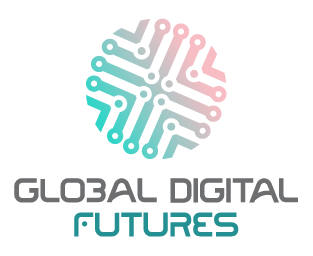Technology for Development: Thinking Large & Small
by Eliza Bacon
Junior Producer & Editor Global Digital Futures
“No matter how great you think your tech idea is, if it is being created to serve the needs of people in Africa, for example, do your research, accept when someone tells you the solution is not for them.”
There is a widespread consensus that innovative technology can drive development goals. The global growth of mobile and internet access laid the foundations for Technology for Development (T4D); the challenges brought about by COVID, particularly remote delivery of programmes, has cemented its value. This is echoed by organisations in the development space, such as UNICEF, who reported this year that T4D is now instrumental to every area of their work.
I first came across T4D last year, whilst interning at UNICEF’s Regional Office for South Asia. I was amazed by their U-Report tool, a chatbot that simultaneously disseminates information to, and gathers the opinions of, young people around the world. The ability to connect directly with the recipients of development programmes is a pretty big game changer - a hopeful glimpse into a more participatory, less top-down, future of aid. And, at a time where “big data” has earned itself a bit of a bad name, it is reassuring to see how large-scale data collection can be used for good.
But T4D practitioners still face scrutiny when it comes to how locally relevant and rooted their technologies are. International organisations, vying for global reach, can spread themselves too thinly, without the necessary depth in each local context. And although mobile and internet access is on the rise, the digital divide is still stark, operating across economic, geographic, linguistic and gendered lines. Plenty of cultural and linguistic understanding is required to ensure that shiny new technologies are really solving problems and reaching the right people. A preoccupation with the internet will ignore, for example, the 78% of people in Africa who have no access to it. Research by Oxfam suggests that older, more familiar technologies tend to be more effective.
This week, Chipo spoke to Hannah Metcalfe, Country Director for Viamo in Tanzania. Viamo’s technology can reach any mobile phone in the world: they partner with governments, NGOs and other organizations who want to carry out surveys, disseminate information and more. In their conversation, Hannah explains how Viamo’s voice recognition technology enables participants to speak to Viamo’s phone lines from any mobile phone in their own language, and some projects are still conducted via radio. It’s a reminder that new technologies are not necessarily going to be the most effective tool for every population; innovation should not be prioritised over user-experience. And the wealth of data that an organisation like Viamo receives can inform and improve their technology around the varied, complex needs of its users.
Another way to get real insight into the needs of users? Be one yourself. In the upcoming GDF ThinkTank episode that will accompany this podcast episode, we talk to Trueman Hama Mabumbo, a Zimbabwean A-Level student, who is the founder of Dzidzo Paden | Imfund’wedhlini, a WhatsApp based chatbot that disseminates academic resources to students across Zimbabwe. He recently secured a partnership to launch the bot with UNESCO. Trueman is a testament to what can happen when international NGOs listen to and collaborate with people who have rooted experiences of the problems they are trying to solve.
When T4D can enable development practitioners to listen better to those they serve, and adapt to global challenges like COVID-19, then it can represent all of the hope and innovation that I want to believe exists in the world of tech.
Eliza is studying the Global Media & Communications MA at SOAS, and holds a BA in English Literature from Cambridge. Eliza worked as a Communications Intern at UNICEF's South Asia office in Kathmandu, and hopes to become a writer on tech and global internet cultures.


